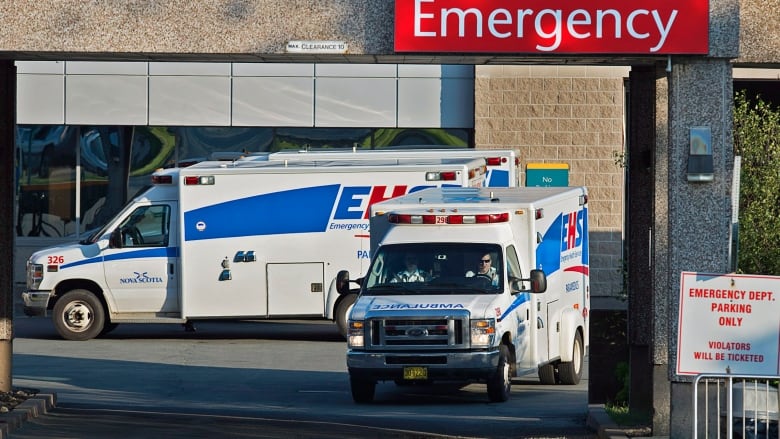Why the cost of an ambulance shouldn't stop you from calling 911
Health-care consultant Mary Jane Hampton shares her health hacks with CBC's Information Morning

This is part of a series from CBC's Information Morning whereHalifaxhealth-care consultant Mary Jane Hampton discusses her"health hacks" ways to make your experience with the health-care system better.
Just four months after arriving in Nova Scotia, Mary Jane Hampton narrowly missed a deadlycrash on Highway 104. A car passed her on a turn and veered into an oncoming 18-wheeler, sending three vehicles careeninginto the ditch.
It was 1992 and there was no 911. The truck driver used his radio to call for help and soon an ambulance arrivedoperated by the local funeral home.
Emergency services were very different back then, and Hampton believes their transformation should provide a measure of comfort to Nova Scotians.
Today, the Halifax health-care consultantcalls the province's Emergency Health Services system (EHS) amongthe best in the world.
"I would challenge anyone who says that it's not possible to do big things in health care to look back at that moment," Hamptontold CBC Radio's Information Morning.
"And it was a brave thing to do because it was a long-established business model that needed to be undone."
'Mini hospitals' on wheels
Back then, it was up to funeral homes and private companiesto respond to emergencies. Depending on the day, thevehicles were either used as a hearse or an ambulance.
There was no special medical equipment on board and the drivers had no training.
"It was a question of scrape and load, and that was exactly the terminology that was used," said Hampton.
That all changed in 1994 when EHS was established in Nova Scotia.
A quarter of a centurylater, ambulances are now operated by highly trained paramedics. These "mini hospitals on wheels," as Hampton calls them,can begin treating people right at the scene of an accident.

Still, Hampton said there's a great deal of mystery surrounding howEHS actually works because the Canada Health Act doesn't consider the service"medically necessary," andit's not covered by insurance.
"However, every province has recognized that having access to ambulance service is kind of key to being able to use the health system. So in Nova Scotia, like every other province, it's highly subsidized," she said.
While the true cost of operating an ambulance is roughly $750, saidHampton, patientstypically pay$150. For patients from outside of Canada,however, the price tag is closer to $1,100.
Don't let the cost scare you
Hampton said that cost is not due up front;patients are billed after the fact. It's a flatfee no matter the distance or whether someone requires a ground or air ambulance, she said.
A couple of years ago, Hamptonwas involved in an evaluation of howNova Scotians access EHS. She said she was stunned to learn several people feared calling an ambulance because they couldn't afford it.
"So even though they felt in some instances that they were having a heart attack, they would drive themselves to the emergency department rather than call the ambulance. That is never a good idea. Ever," she said, adding there are supports and programs in place to help shoulder some of the cost.
However, Hamptonsaid it's important for people to understand that arriving at the hospital in an ambulance doesn't mean you'll be seen first.
"It isa bad plan if you just think it's a fast pass to call the ambulance to get you to the emergency department. Your wait will not be any different," she said.
READ MORE FROM OUR HEALTH HACKS SERIES
With files from CBC Radio's Information Morning












_(720p).jpg)


 OFFICIAL HD MUSIC VIDEO.jpg)
.jpg)



























































































